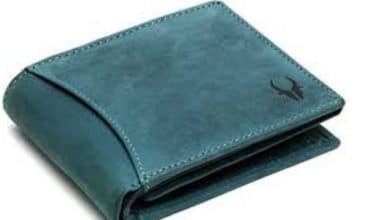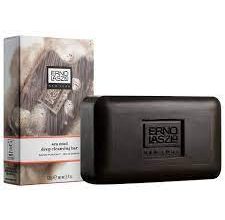There is an increasing number of women in business in our world today. The number of female entrepreneurs who are beginning to embrace the path of business is rising daily. There are more women in business now than there have ever been in the history of the world, especially now that many foundations and organizations are cut-outs for equal rights, with the number of feminists and women’s rights activists increasing daily to help female entrepreneurs rise to responsibility and build empires. Society is changing to favor more women embracing the business and the increasing number of opportunities specified for women. These are women in business to watch out for this year.
#1. Emily Weiss:
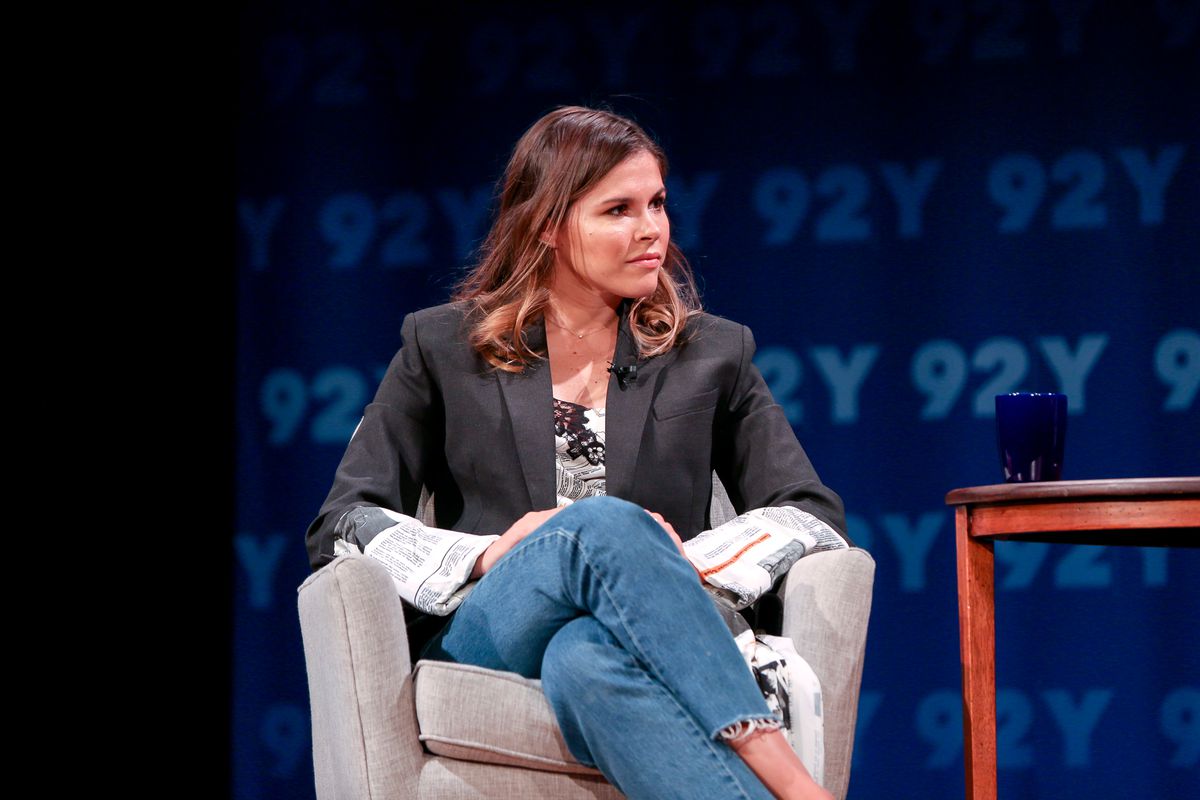
How Emily Weiss took her blogging passion to more than a billion-dollar company is something worth emulating in the business world. This makes her unique among many other women in business. She might not be among the top 100 most powerful women in business but with the way she goes, we should watch out for her this year as one of the top female entrepreneurs.
Weiss worked for several fashion magazines before starting a beauty blog called “Into the Gloss” in 2010 that cultivated a large following. The idea for an e-commerce beauty site evolved from the blog. With a degree in art from New York University, Weiss felt unprepared to raise funds. Eleven venture capital firms turned her down. The female founder of Forerunner Ventures, Kirsten Green, decided to bet on Weiss. Green invested $2 million in seed funding in September 2014. Just two months later Glossier received a Series A round of $8.4 million from another firm. Since then it has received two more rounds of $24 million and $52 million for a total of $86 million.
Starting Glossier in 2014 with just four products, Glossier now sells skincare, makeup, and fragrance products online. She has consumers from the United States, Canada, and the United Kingdom patronizing her. The company has a showroom in New York, where it also has its headquarters. It has more than 300 employees across three countries.
#2. Melanie Perkins: one of the fastest-rising female entrepreneurs

The company has 10 million users across 179 countries and creates 10 designs via its website every second. Not bad for a business that had its genesis in the lounge of Melanie’s mother’s house in Perth.
This was back in 2006 when Melanie was a 19-year-old commerce and communications student at the University of Western Australia. At the time she says she experienced frustration by how long it took to learn how to use most mainstream design software. “It could take a whole semester to learn the very basics,” she says. “Even the simplest tasks, like exporting a high-quality PDF file, could take 22 clicks.” Like one trait found in female entrepreneurs which is finding a problem and building a solution, Melanie did exactly that.
While most of us would moan about this state of affairs, Melanie, spotted a business opportunity. She decided to try to launch an online design website that would be as easy as possible for people to use. “I realized that in the future design was all going to be online and collaborative, and much, much simpler.” Testing her business idea on a relatively small scale, she and her boyfriend Cliff Obrecht founded Fusion Books. This was a website that allows high schools to design their yearbooks online.
Achievements
Effectively a prototype version of what would become the Canva system, she and Cliff set up shop in her mother’s front room and borrowed money from relatives to pay for software designers to build the platform. Over the next few years, Fusion grew into Australia’s largest yearbook publisher, before expanding to France and New Zealand. Melanie left the university to focus on business full-time as it became so successful.
Realizing that Fusion could be applied beyond yearbooks, in 2010, she flew to California to pitch the idea for Canva to potential investors.
Today, more than 200 people work for Canva, with its headquarters in Sydney and Manila. It also has an office in San Francisco. In the financial year, 2016-17 Canva’s revenues grew more than twofold from $6.8m to $23.5m, according to Australia’s Financial Review website. However, the company made a loss of $3.3m and has actually not yet made a profit as it has instead focused on rapid expansion. Canva is a private company, so its $1bn price tag comes from the private investors and venture capitalists who are backing it. That’s what they think the firm – and Melanie and her team – are worth. She ranks as one of the most inspiring women in business.
READ ALSO: APPLE BRAND SECRETS WOMEN CAN LEARN FROM
#3. Jessee Genet

At age 16, Jessee Genet started making t-shirts in her parent’s Detroit basement. Genet Apparel had been in business for three years. Genet then moved to Los Angeles and received a B.S. in product design. This prepared her on her journey to join other female entrepreneurs.
In 2010 she started a new company, Inkodye, which manufactured a sunlight-activated fabric dye. Genet brought the product to market through two Kickstarter campaigns that raised over $270,000. She achieved profitability, by selling the product in more than 1,500 retail stores worldwide for five years.
Lumi, Genet’s latest venture, is an online platform that helps e-commerce companies in the U.S. manage their packaging supply chain. In 2015 after a failed effort on the television series Shark Tank to raise, Genet participated in incubator Y Combinator and changed Lumi’s business model. The Lumi Dashboard allows e-commerce firms to find and procure packaging produced by Lumi’s global network of factories. Lumi’s customers must ship more than 1,000 orders per month. Based in Los Angeles, the company has 63 employees.
READ ALSO: WHY WORLD RANKED POWERFUL BUSINESSWOMAN RESIGNS AS CEO OF PEPSI
#4. Tara Fela-Durotoye: Influencer for African Women in Business
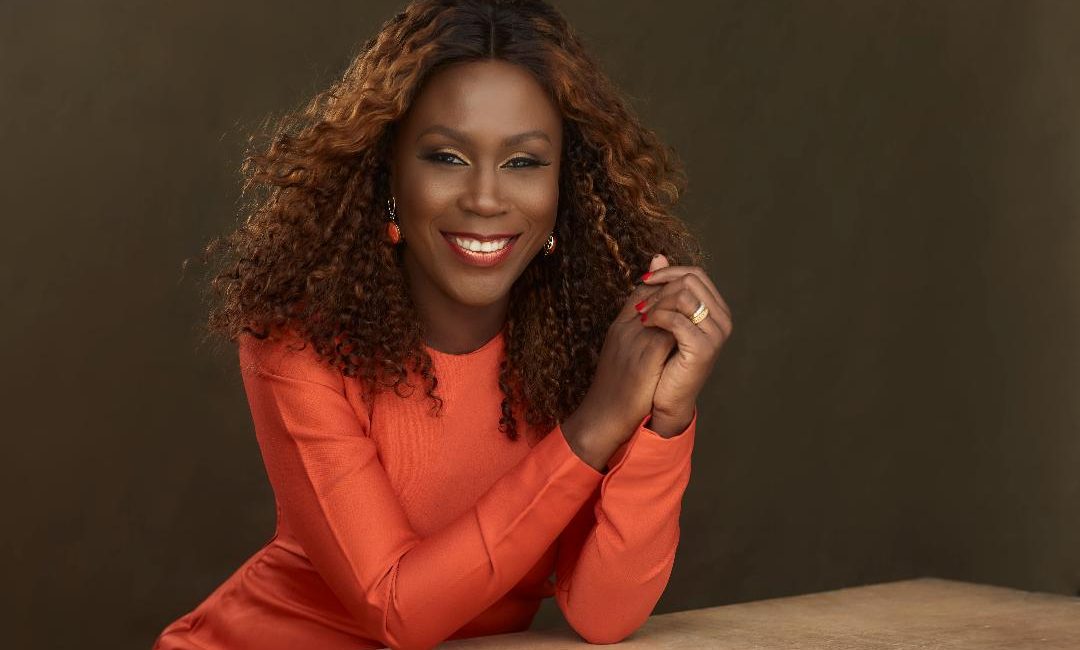
is a Nigerian-born lawyer who has become Africa’s leading beauty and makeup entrepreneur. One of the most powerful and wealthiest women in business in Nigeria. She started House of Tara at the age of 20, from her living room. This was during her undergraduate days at university back in 1998. She has since moved on to launch Nigeria’s first-ever bridal directory in 1999. In 2004, she opened the country’s leading beauty academy. Today, Tara has over 3,000 reps spread across Nigeria and 14 stores to her name. She is steadfastly dedicated to realizing her vision of building a globally respected beauty company of African origin. Tara remains an inspirational role model and mentor to make-up artists and aspiring beauty business owners across Africa.
In 2013, Tara was nominated as a Young Global Leader by the World Economic Forum. She was also named one of Forbe’s ’20 Young Power African Women’. Tara’s early journey towards joining female entrepreneurs in business and entrepreneurship was inspired by an advertiser, who spoke to her about being business conscious whilst she was still in secondary school.
She remembers: “I was in secondary school many years ago and a man came to speak to us and he came to speak to us as an entrepreneur, that is, as a businessman. He was in advertising and because he was creative, I found him interesting. He made me interested in the business… I eventually went to university and I studied law. As an undergraduate, while I was still in school I started a business. I started with just N15,000 (fifteen thousand nairas). It is less than the cost of a blackberry phone.
Challenges
Tara started her entrepreneurial journey seriously in the beauty business when she was still a law student at Lagos State University. She later trained as a makeup artist for Charles Fox. Yet, her early interest in makeup and fashion was stimulated by her stepmother, a highly fashionable and glamorous woman who used to work in the Ministry of Culture and studied Fine Arts. Tara says of her mother’s inspiration growing up: “ She was a fantastic woman, very fashionable, so when you looked at her dressing table she had make-up products, she would paint her face in the morning, she never missed her hairdressing appointment, her nail polish was always perfect. I grew up seeing her adorn herself and I liked looking at her through that process. I didn’t know that a seed was being sown in my heart.”
Speaking about her early entrepreneurial challenges when first starting up the business, she says: “At startup, we faced challenges with raising funds. In Nigeria, you need to be able to get financing, and raising funds was a big problem. Also, our industry is an informal one, and as pioneers, we could not find standards to copy. It’s easier when you see something you can copy, but when you have to think it through and make it up as you go, it’s not easy. Now, we are dealing with the challenges of attracting talent and retaining them; keeping the voice of the vision across multiple branches and across a number of people. We also face the challenge of people asking us to sell shares in the company and people consistently looking for ways to be part of the business that will boom.”
Aftermath
Tara’s entrepreneurial success story has been an inspiration to many young female entrepreneurs and aspiring women in business. To date, over 1,500 students have graduated from her make-up school so far and many have gone on to start their own businesses, while some have become beauty bloggers. A number also work for international cosmetic brands, which like many western companies are keen to invest in the oil-rich frontier economy. Tara has 80 full-time employees and over 3000 independent sales representatives across the country.
READ ALSO: SIMPLE MARKETING TRICKS THAT CAN HELP WOMEN IN BUSINESS
#5. Adenike Ogunlesi – CEO Of Ruff ‘N’ Tumble
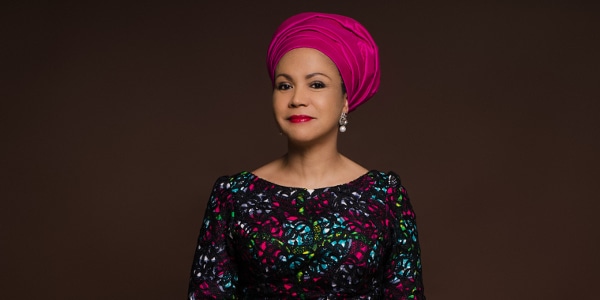
Nike, who is one of the most sought-after female entrepreneurs in Nigeria now did not know what to do with her life after she opted out of school in her second year. However, Nike’s mother convinced her to work with her. At the time, her mother owned a growing fashion label, Betti O. Betti O is famous for designing clothes with local fabric, Adire for both men and women.
While at Betti O, they introduced colorful dyeing patterns which can be used for different designs by fashion-conscious people and early adopters. Some months into it, Nike discovered that she enjoyed what she was doing and worked with her mother until she got married. After getting married with kids, she decided to be a stay-at-home mom to spend time with her children.
Nike was an experienced dressmaker taught by her mother. Her inspiration for making children’s clothing came as a result of the necessity for her kids. The idea was conceived when she sought new pajamas for her kids and found none. She then made pajamas for her children which were loved by family and friends. Family and friends patronized her and she was encouraged to manufacture more for other children by her husband. That was the beginning of what is now an instantly recognizable brand. All these she did from the comfort of her home.
Read Also: High Paying Businesses women can do at home
True women in business sometimes have humble beginnings. When Adenike Ogunlesi started, she used to sell clothes from the boot of her car, at bazaars, and local markets and was always quick to show her designs to people. Sales increased consistently, and as a result, she expanded by hiring more tailors to meet the increasing demand.
Adenike Ogunlesi studied the Nigerian local market for children’s ready-made clothes and discovered that children’s clothing was either poorly made or imported and extremely expensive. She saw an opportunity and founded Ruff ‘n’ Tumble, a clothing brand that specializes in children’s apparel, in 1996. Today, Nike’s clothing line ranks as a national brand that is highly respected and recognized in an instant. Her company is one of the most successful and innovative children’s clothing companies in Nigeria.
Ruff ‘n’ Tumble presently operates a warehouse, and a factory and has many retail outlets in major cities in Nigeria, as well as several distributors around the West African Coast. The retail outlets’ cities in Nigeria are Lagos, Ibadan, Abuja, Port Harcourt, Ilorin, and Kano.
Adenike Ogunlesi widened her revenue model with the introduction of newer brands, Trendsetters, and NaijaBoysz. To cater to the unique fashion sense of today’s young adults, she introduced these brands.
Why More Women in Business Is Better?
Women also have an advantage when it comes to being motivated, exhibiting courageous leadership, and working well with others. The findings also indicate that male supervisors acknowledge the superior performance of their female employees in a number of professional domains. The report “2021 Women in the Workplace” illustrates women’s strengths in diversity, equality, and inclusion (DEI) as well as their abilities in the workplace.
What is the Future of Women’s Leadership in Business?
It is anticipated that there will be 4% more women in positions of authority within the financial services industry between the years 2021 and 2030. As of June 2021, however, just 41 of the Fortune 500 businesses operating in any industry had women serving in the position of CEO. By raising awareness, we can help businesses realize they need more women in executive positions and pave the way for more women to take charge in their organizations.
As of June 2021, however, just 41 of the Fortune 500 businesses operating in any industry had women serving in the position of CEO.
Businesses that are open to gender diversity typically support the advancement of women to positions of leadership. IBM, for one, highlights the success of gender-inclusive corporations. According to the paper titled “Women, Leadership, and Missed Opportunities” published by IBM, the company has achieved a number of successes, including an increase in revenue of 61% and an increase in the innovation of 54%.
What are the Benefits of Having Women in Executive Positions?
When women hold leadership roles, more business opportunities become available. According to a report by McKinsey & Company, the performance of an organization has a direct impact on its revenue. Performance is impacted by essential leadership abilities such as making decisions through collaboration and cultivating relationships with others. According to the findings of the report, women score higher than males in five of the nine critical abilities for maximum performance.
Those that are led by women typically have higher stock values than companies that are led by males. Women also perform better than men when it comes to being innovative and solving problems, two talents that are essential for growing businesses.
According to studies published in the Harvard Business Review, female CEOs exhibit boldness and a readiness to take chances. This makes room for novel concepts and methods to be considered.
Why Do Women Make Great Business Leaders?
Women are capable of and excel as top-level executives and elected officials. In 2019, women represented slightly more than half of the U.S. labor force, a dramatic increase from earlier decades.
Women in business scored higher than men on most key leadership attributes, including resilience and a results-driven mentality, according to an analysis published in the Harvard Business Review. In terms of inspiration, brave leadership, and teamwork, women also excel.
The data also reveals that male managers acknowledge that women excel in a variety of careers.
Also, women’s skills in promoting diversity, equity, and inclusion (DEI) are highlighted in the 2021 report Women in the Workplace. At the present moment, 54% of senior-level women devote time beyond their job obligations to fostering DEI in the workplace. Just than half (46%) of senior-level men are doing this.
Women In Business FAQs
Why are women so important in business?
Using the insights that both men and women provide can help to make products and services more marketable and a business more successful. In fact, McKinsey’s research suggests that gender-diverse organizations are 15% more likely to surpass the industry median financially.
What it means to be a woman in business?
Being a successful business requires the confidence to own who you are, why you do what you do, and how you can use your vision to positively impact the world. A successful woman is feminine in her confidence and willingness to learn and improve. She has found equilibrium and perspective in all facets of her life.
Who owns more business men or women?
In the United States, there are 12.3 million women-owned enterprises. 90.3 percent of women own micro-businesses, compared to 82.3 percent of males. Women-owned businesses grow by 84 percent on average, whereas men-owned businesses increase by 78 percent.

